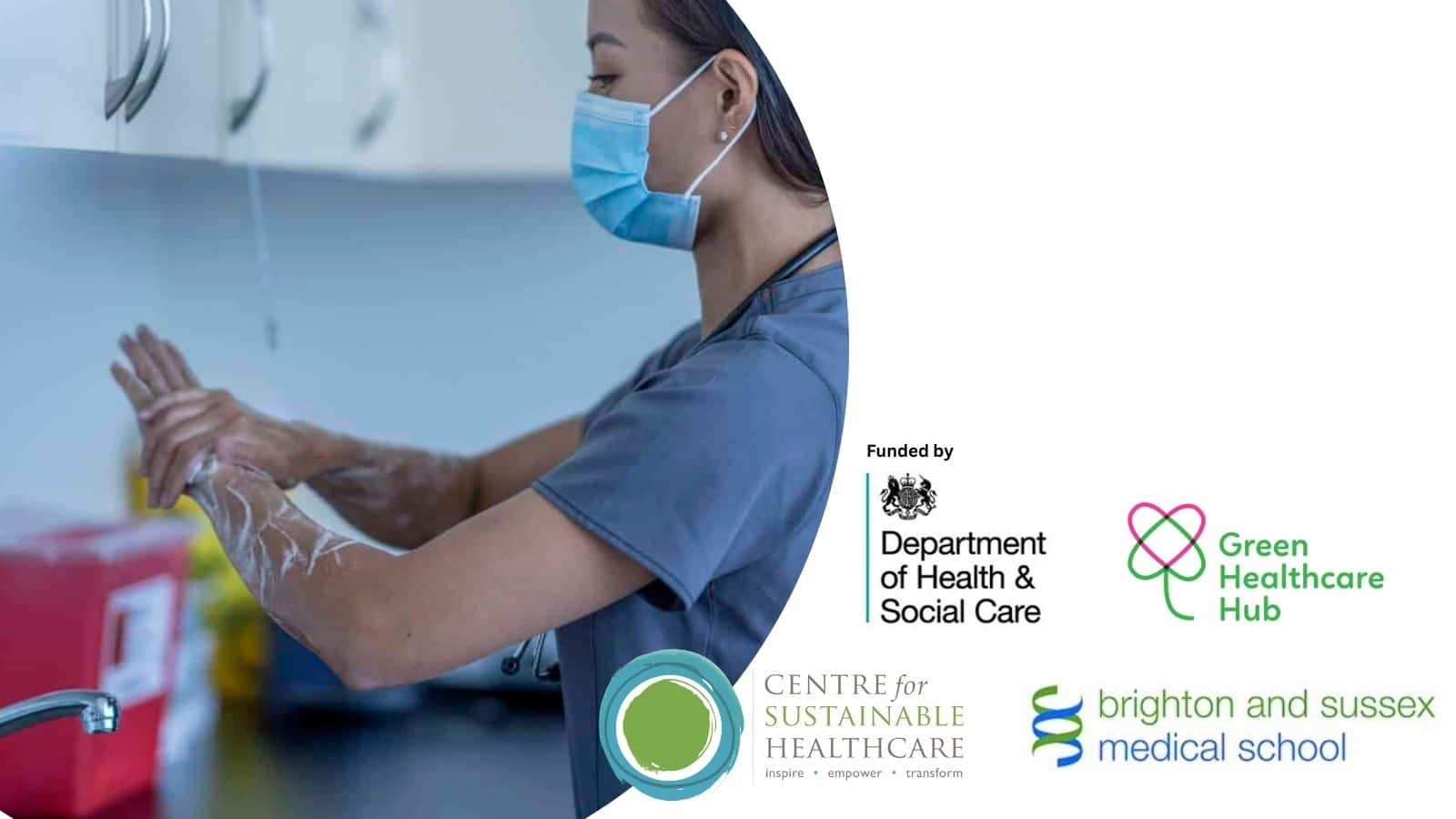
Reusable MedTech in the NHS – Pioneering Sustainable Healthcare
The Centre for Sustainable Healthcare (CSH) partnered with the Department for Health and Social Care’s (DHSC) Design for Life (DfL) team and Brighton and Sussex Medical School (BSMS) to deliver a groundbreaking pilot project on the use of reusable medical technologies (MedTech) in the NHS.
This initiative worked with selected NHS Trusts and Health Boards to assess the environmental and financial benefits of transitioning from single-use to reusable versions of key medical products. The project also investigated the barriers healthcare professionals and institutions face in making these transitions.
What is the Reusable MedTech in the NHS project?
The primary aim of this project was to answer the question, ‘how can the NHS successfully transition from single-use to reusable MedTech while ensuring patient safety, infection control, and cost-effectiveness?’
This pilot represented a crucial step towards embedding sustainability in NHS supply chains. By providing robust evidence on the feasibility and benefits of reusable MedTech, the project will help inform national policy and pave the way for wider adoption across the healthcare system.
The challenge
The NHS relies heavily on single-use medical products, contributing significantly to carbon emissions, waste production, and rising costs. While reusable alternatives exist, widespread adoption has been limited by concerns around infection control, cost implications, and logistical challenges. There was a clear need to evaluate the feasibility of switching to reusable MedTech while maintaining high standards of patient safety and efficiency.
The opportunity
By shifting from single-use to reusable MedTech where clinically appropriate, the NHS has the potential to achieve:
- Significant reductions in carbon emissions associated with manufacturing, transport, and disposal.
- Cost savings through reduced purchasing and waste management expenses.
- Enhanced resource efficiency, minimising the environmental footprint of healthcare delivery.
To realise these benefits, the project assessed the impact of reusable MedTech in a real-world NHS setting and provided clear, evidence-based recommendations for future implementation.
Project objectives
Framework development
CSH worked with Brighton and Sussex Medical School (BSMS) and their Green Healthcare Hub to develop a structured approach for implementing reusable MedTech. This included:
- Carbon and cost modelling to assess the impact of reusables.
- A readiness assessment to evaluate Trusts’ preparedness for the transition.
- Establishing testing models and protocols for data collection.
- Developing guidance and training materials for healthcare professionals.
Trust engagement and pilot selection
A small number of NHS Trusts and Health Boards were identified for participation. Using existing sustainability networks, CSH sought expressions of interest and conducted readiness assessments. A final selection of 10 pilot projects was agreed upon with the DHSC to ensure representation across various healthcare settings. Individual case reports from all participating sites are available in CSH’s resource library, alongside a wide range of other resources.
Implementation and monitoring
The pilot projects were launched and monitored, comparing key outcomes before and after the intervention rather than using separate control groups. CSH oversaw the process, leveraging its expertise in supporting NHS sustainability projects such as the Green Team Competition.
Research on adoption barriers
A parallel research initiative, led by BSMS, assessed the challenges NHS Trusts and healthcare professionals face when considering reusable MedTech. This involved both participating Trusts and those unable to take part, helping to identify common obstacles and potential solutions.
Reporting and recommendations
A final report has been produced to consolidate findings from both the pilot projects and the research phase. Read the report to hear about the environmental and financial benefits of reusable MedTech and strategies for overcoming implementation challenges.

If you have any questions about the project or need any more information please contact Rachel McLean, CSH’s SusQI Programme Lead.
